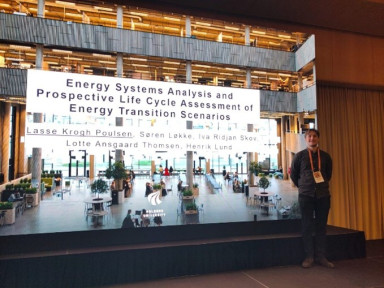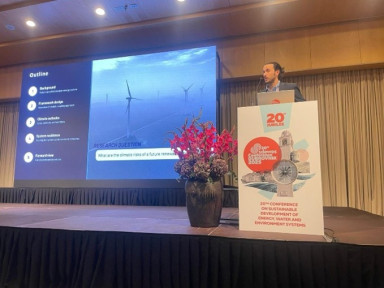SusRenew at SDEWES 2025

Recently, Iva Ridjan Skov, Alessandro Mati and Lasse Krogh Poulsen (Aalborg University) presented work from the SusRenew project at the 20th Conference on Sustainable Development of Energy, Water and Environment Systems (SDEWES) held in Dubrovnik, Croatia.
The contributions were part of the special session on Model Coupling for Future Renewable Energy Systems: the multifaceted dimensions of energy modelling, organized by Iva and Alessandro. This session brought together 6 presentations and researchers exploring integrated approaches to energy system modelling, with a focus on enhancing modelling of climate resilience and environmental assessments.

- Alessandro presented a study titled “Addressing climate resilience in energy system modelling: a multi-model framework for Norway”, which explores the ongoing energy transition in light of the growing risks of climate change. By applying a coupled energy system modelling framework, the study assesses the resilience of the Norwegian energy system from a technical perspective across different technological pathways towards mid-century. Findings show that integrating climate change into the analysis of future low-carbon energy systems requires moving beyond cost minimisation, focusing instead on ensuring reliable supply spanning across multiple sectors. Finally, the study emphasises the value of a multi-model strategy in tackling the complex, interlinked challenges posed by a rapidly changing climate.
- Lasse presented the development of a model coupling framework for energy system modelling and life cycle assessment in his presentation titled “Energy Systems Analysis and Prospective Life Cycle Assessment of Energy Transition Scenarios”. The framework was demonstrated using Danish energy scenarios and is to be used to assess the environmental impacts of Norwegian energy transition scenarios in SusRenew. The framework supports more comprehensive evaluations of future energy systems by combining technical feasibility with life cycle environmental performance, capturing potential trade-offs between different system configurations.
The SusRenew team’s contributions underscore the importance of interdisciplinary collaboration in tackling the complex challenges of energy resilience and transition.
